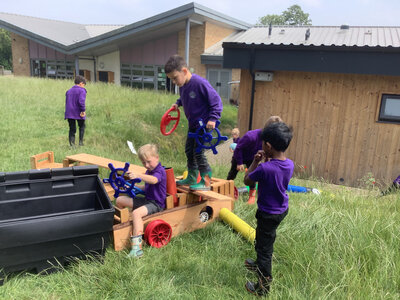Science Curriculum Overview
- At Millbrook, we follow the current National Curriculum.
- We use a progression of knowledge and skills document which enables teachers to plan to meet the range of abilities throughout their year groups and ensures that the curriculum is skills focused. These levelled skills ensure that all abilities are catered for – extended and supported as appropriate.
- The knowledge covered in each year group builds on what they covered in the previous year.
- By the time children leave Year 6, they will have covered all of the subject content and skills, such as making systematic observations; taking measurements; gathering, recording, communicating and presenting findings or generating predictions and conclusions.
- Science provides a secure understanding of knowledge and concepts, along with necessary skills, such as observing, recording and presenting findings.
- Science is taught weekly as a discrete lesson, across the school as it is a core subject and also due to the huge impact it has on daily life and the need to understand the world around us.
- At Millbrook, within Years 1-6, we link our Science programme of study to our topics, where practical, because it enhances children’s learning, or we may link Science to specific English topics or seasonality. Otherwise, Science is taught discretely.
- When appropriate, Science is linked to English, Maths or Computing lessons to enable cross-curricular learning, which supports a broad and balanced curriculum.
- Throughout the year, Millbrook also runs themed days and whole school activities around Science, and every month purely fun Science activities are available to add a wow factor!
- Practical investigations are vital to exciting Science lessons and exploring ideas deeply and meaningfully. It further helps children retain the knowledge and skills gained in fun and memorable Science lessons.
- Within the Foundation Stage, Science is integrated and taught across the year through the continuous and enhanced provision. When appropriate, Science is linked to the learning theme and explicitly taught as a whole class session. The children talk daily about the weather and seasons and how they change over the year. The children actively engage with a variety of science equipment and materials independently but the adults support their curiosity and encourage inquisitive minds by modelling ‘I wonder’ statements.
- Each term, children produce work in their Science books. Further evidence of their learning and skills is also shown on display boards in classrooms and around the school.
- Recapping previous learning is fundamental to progress and understanding. Each new topic starts by refreshing children’s knowledge of their learning from previous years, and as they develop in a topic, recapping previous learning to embed their current knowledge and skills.
- Assessments are also used to support children to understand how much they have learned and areas where they may find tricky.
- Children enjoy the practical and investigative aspects of Science supported by necessary but focused recording.
- Children can apply these concepts in context by linking it to real life situations and understanding why they are relevant to them.
- They apply technical vocabulary, which progresses and builds as the children grow and supports their existing knowledge from other subjects, for example Maths where they may collect, analyse and present data.
- Characteristics of learning – being inquisitive, working in a practical and methodical way, observing and listening carefully, team work, gaining an insight into the world they live in and accurate use of vocabulary.
- Children are able to demonstrate a variety of skills during experiments and investigations, along with termly assessments.


.jpg)